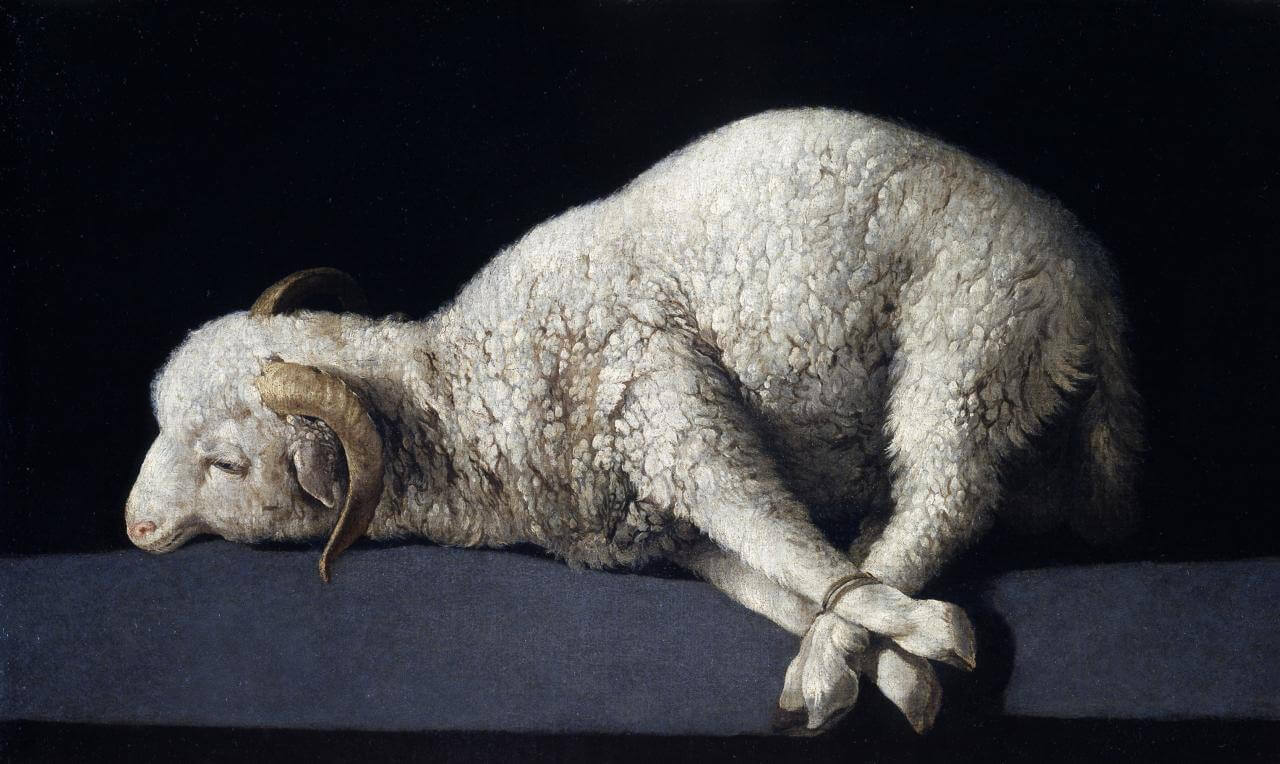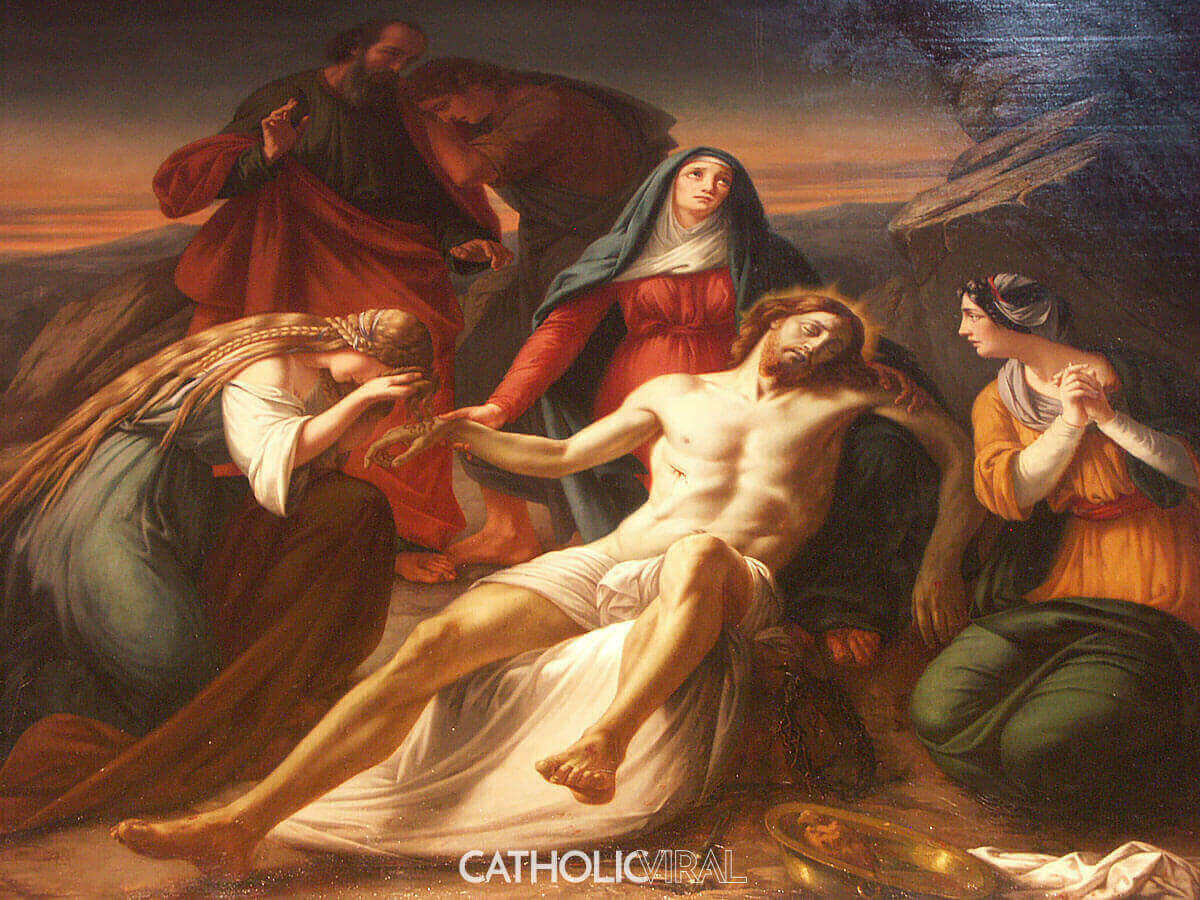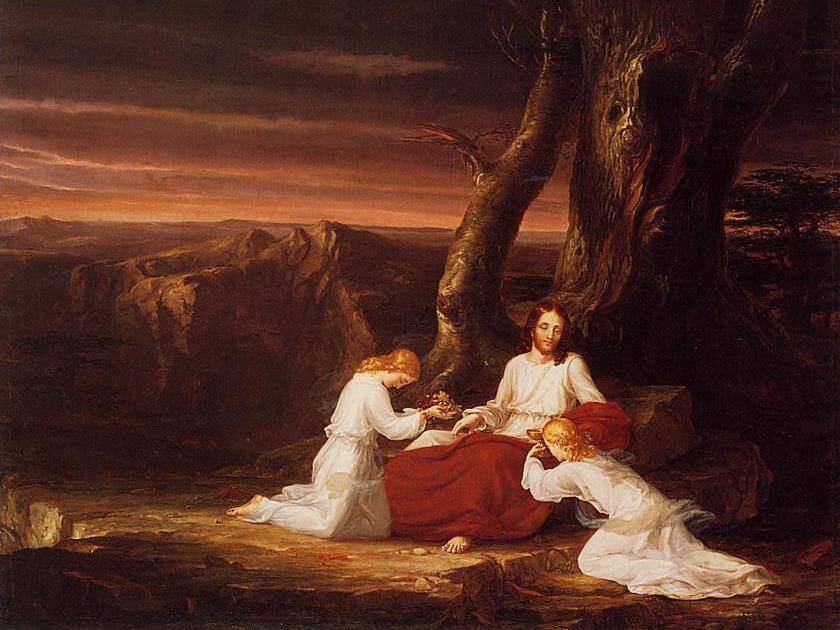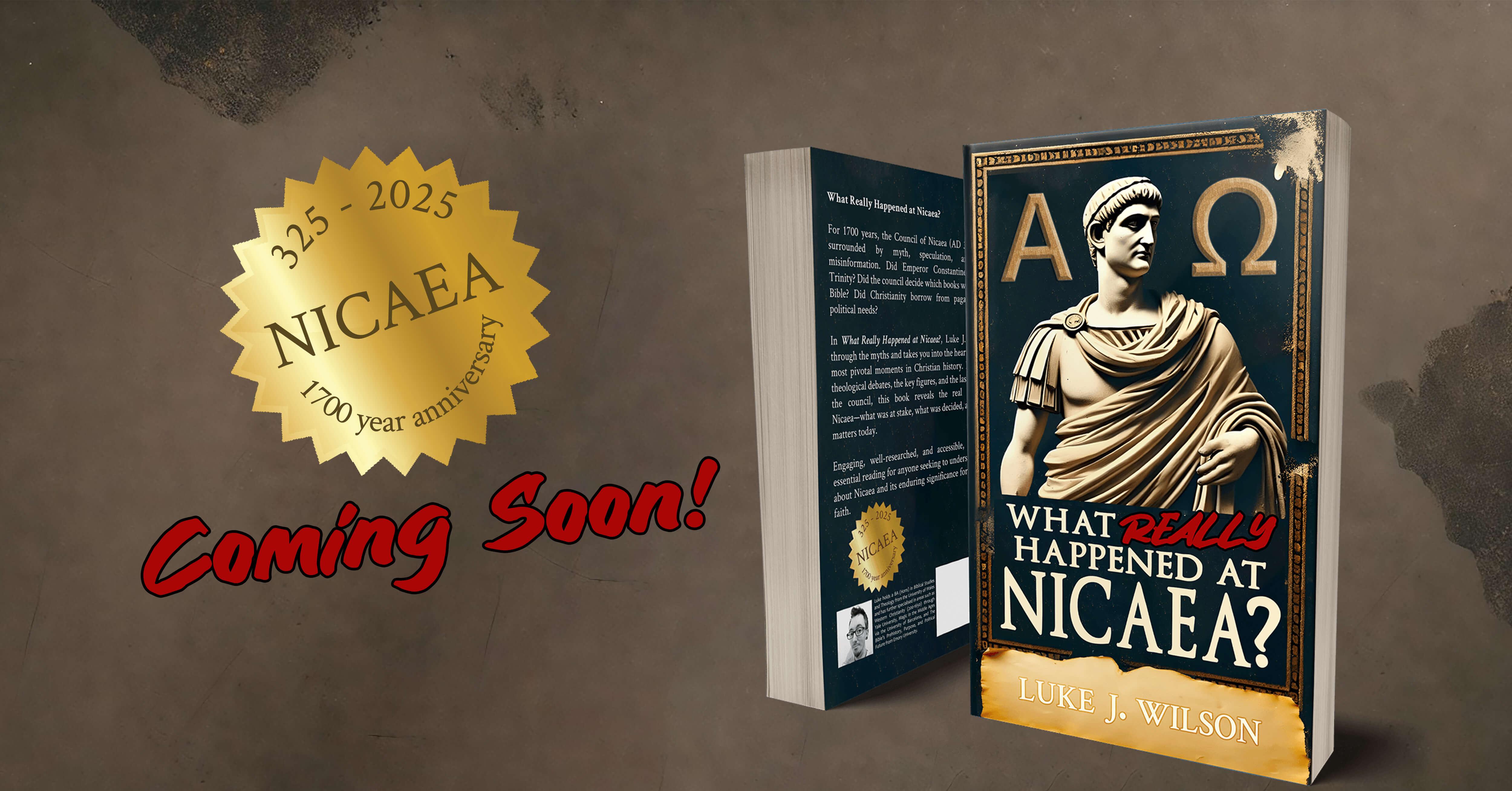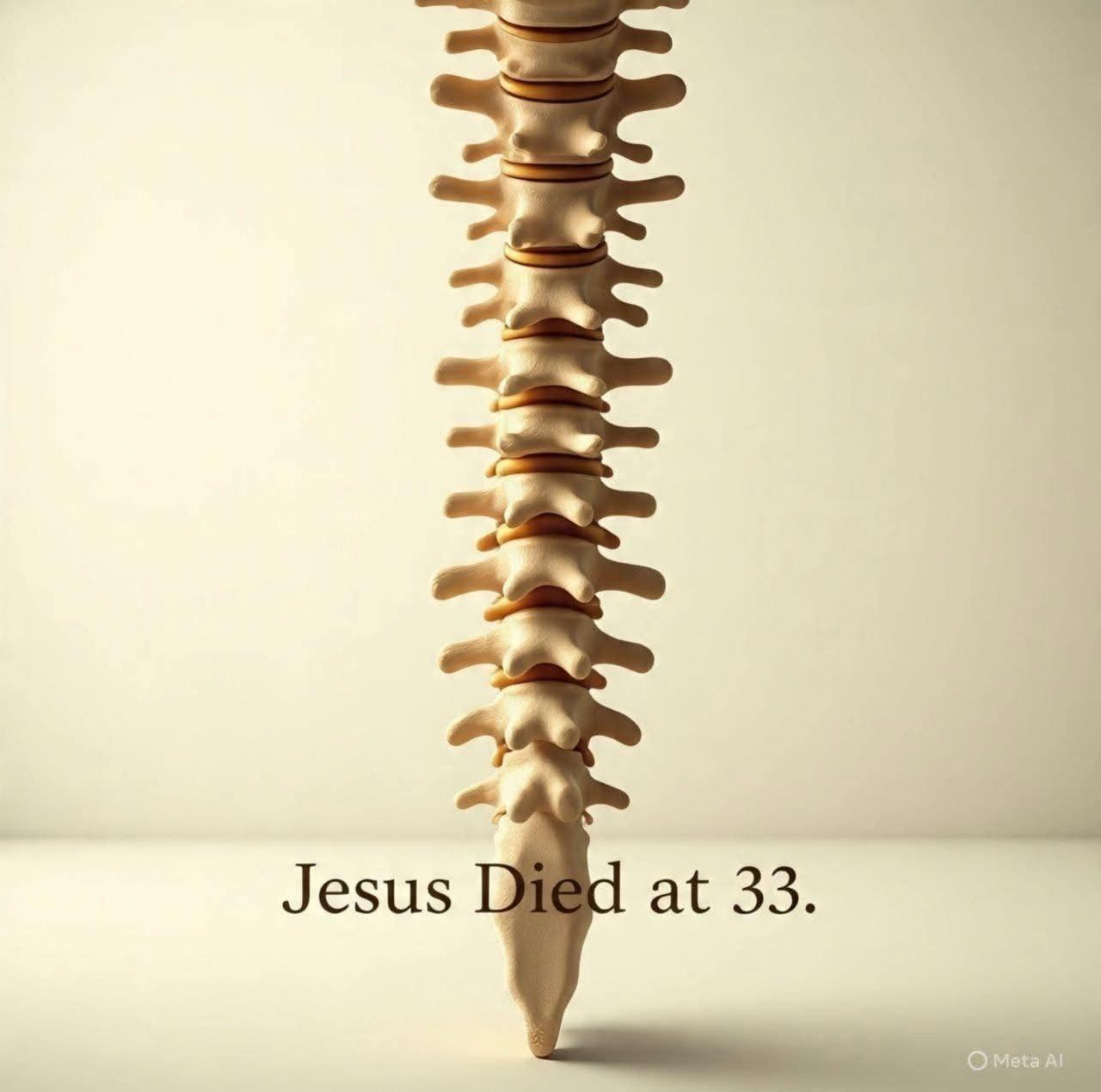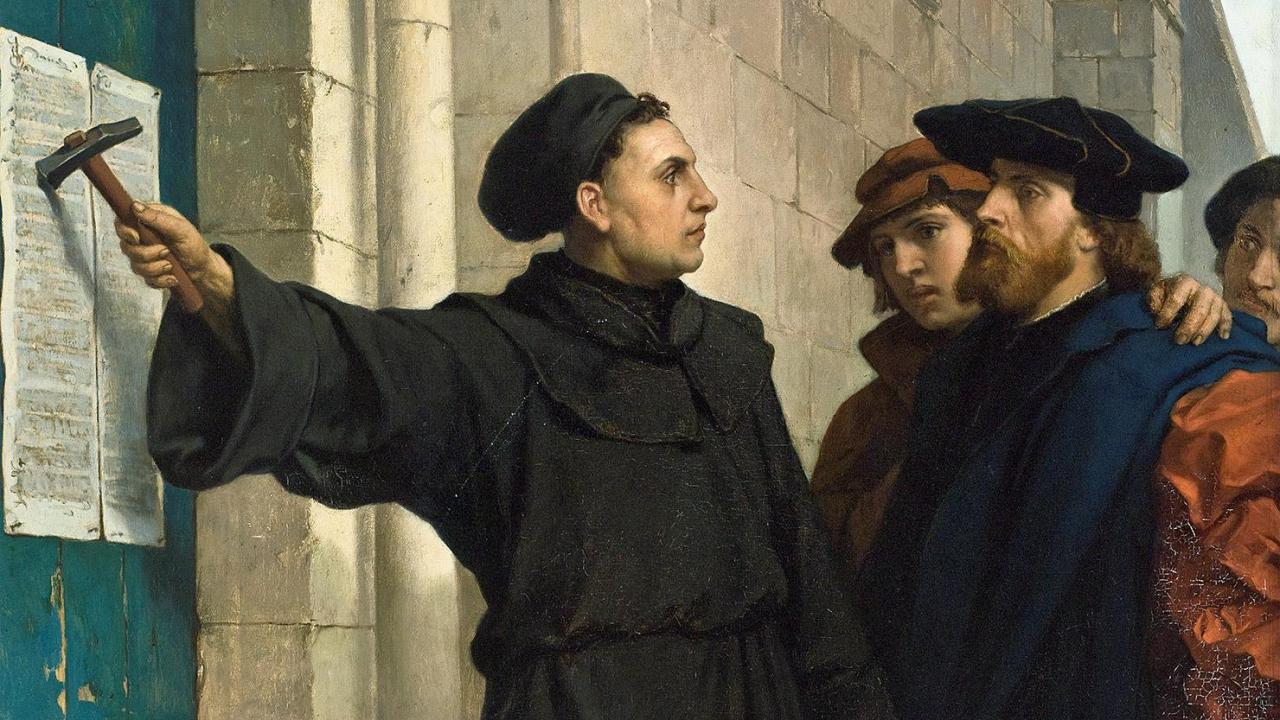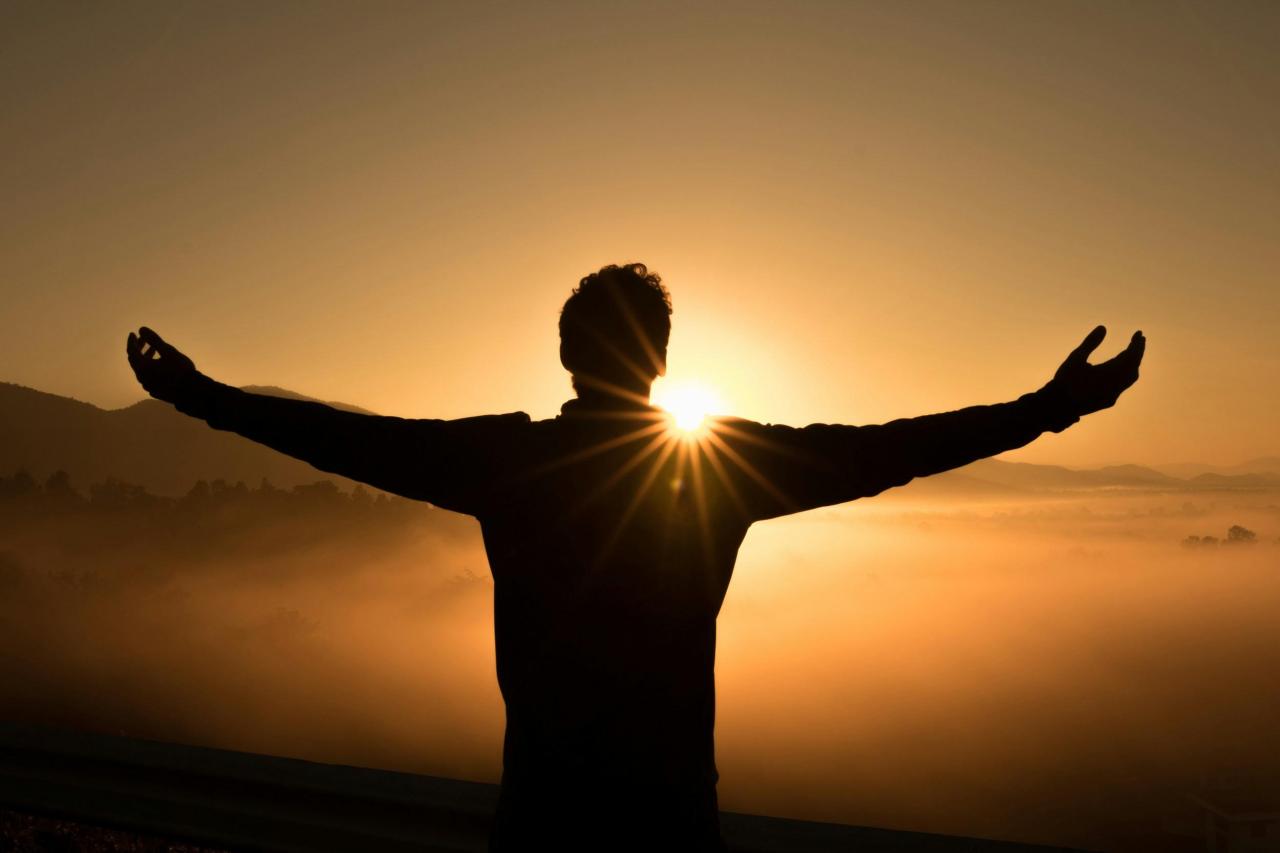Lent Day 26: Athanasius: Life of Anthony: Chaps. 51-60
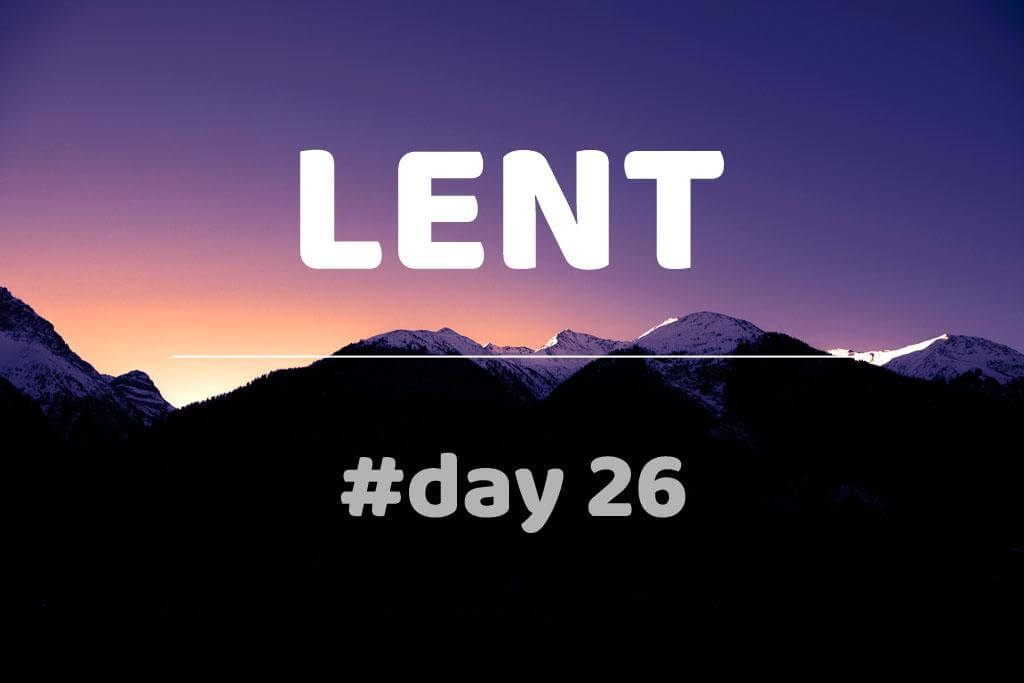
Day Twenty-six: St. Athanasius: Life of Anthony: Chaps. 51-60
Who: Bishop of Alexandria; Confessor and Doctor of the Church; born c. 296; died 2 May, 373 AD. He was the main defender of orthodoxy in the 4th-century battle against the Arianism heresy. Certain writers received the title “Doctor” on account of the great advantage their doctrine had on the whole Church, Athanasius especially for his doctrine on the incarnation.
What: The biography of Anthony the Great’s life, which helped to spread the concept of Christian monasticism, particularly in Western Europe.
Why: From the letter’s own prologue: “The life and conversation of our holy Father, Anthony: written and sent to the monks in foreign parts by our Father among the Saints, Athanasius, Bishop of Alexandria.” They wanted an accurate account of his life so they imitate his life and teaching.
When: Somewhere between 356 and 362 AD
You can find today’s reading on page 131 here: lentfatherscomplete.pdf
Today we pick up at the start of a new chapter in Anthony’s life. He’s just relocated to a new mountain further in the Egyptian desert with the aid of the Saracens and with what is described as a ‘divine love’, Anthony was moved to love the area he found. But it soon became a small burden to him as people would seek him out and look to visit him, or to bring him bread. This area was a three day and night trek from where he previously lived, so the thought of other people taking this treacherous journey concerned him dearly. Eventually, after asking some to bring him corn and seeds, he managed to till the ground to be able to make his own bread and grow his own herbs to save others from needing to bring him food.
Sometimes the wild animals would ruin his garden looking for food and water, but at one point Anthony gently captured an animal and said to it, “Why do you hurt me, when I hurt none of you? Depart, and in the name of the Lord come not nigh this spot” and as though they could understand his words, no longer did the animals come back!
Not against flesh and blood
By this point in time, Anthony was an old man and some of the other believers who had served him, would bring olives and oil and other supplies once a month. Upon visiting him they would sometimes witness strange things going on as spiritual events formed against Anthony, as though soldiers and beasts were attacking him, but he would be seen praying against them and the demons fleeing.
They “heard tumults, many voices, and, as it were, the clash of arms … and [Anthony] also fighting as though against visible beings” since he wrestled not against ‘flesh and blood’ “but against opposing demons” as Athanasius learned from those who visited him during these times.
At other times, demons would make appearances to try and bring fear and to shake his trust in Christ, or they would cause all the hyenas nearby to come and surround Anthony. But, not fearing the Evil One and having his mind set on Christ, he rebuked them and commanded they leave in the name of the Lord if they were sent by demons, which they did and he was then left alone.
Anthony visits the other monks
Some time later, the other monks enquired of Anthony and wanted him to come and visit them, so he set off on the journey with those who came to him. On their way through the desert, their water ran out and they were still some way from any water source, and so the men despaired and let their camel go, and sat on the ground unable to move. Anthony, seeing the danger, went a short walk away to pray to the Lord for help, and immediately, water sprang up where he was standing! So they filled their bottles, found the camel and went on their way refreshed and restored.
On arriving at the the cells of the other monks, Anthony rejoiced in seeing their earnestness and was also happy to find that his sister had become the leader of the nuns in her old age.
During this time, Anthony gave some teaching to the monks and hermits who were living there which were his guidelines for his discipline:
Believe on the Lord and love Him; keep yourselves from filthy thoughts and fleshly pleasures, and as it is written in the Proverbs, be not deceived "by the fullness of the belly." Pray continually; avoid vainglory; sing psalms before sleep and on awaking; hold in your heart the commandments of Scripture; be mindful of the works of the saints that your souls being put in remembrance of the commandments may be brought into harmony with the zeal of the saints.
He also encouraged them to live by the words of Paul in Ephesians 4:26, where he said not to let the sun go down on your anger. Anthony interpreted this further to mean not just anger, but any sin which was committed so that before the end of the day you have set things right with others or have prayed and repented to the Lord. Even further still, he would teach that in order to control our thoughts so that we let nothing sinful enter our mind (ie. “take every thought captive” – 2 Cor 10:5), that the monks should write down every thought they have as though they were to read them out loud to one another at the end of the day. Through seeing what we think and with the idea of others knowing it, the shame ought to keep us in check and help to strengthen our minds against evil thoughts, “thus fashioning ourselves we shall be able to keep the body in subjection, to please the Lord, and to trample on the devices of the enemy”.
Miracles of healing that the Lord did through Anthony
Anthony would spend a lot of his time praying with those who suffered, and sometimes those with illnesses would receive healing. But he taught not to boast if they were, and not to mutter if they weren’t, but to rejoice in all things and to be patient because “healing belonged neither to him nor to man at all, but only to the Lord” and God would do good to those he chose, when he chose to, and “those who were healed were taught not to give thanks to Anthony but to God alone”.
At one time, a man named Fronto, an Officer of the Court, came to Anthony with a terrible disease where he “used to bite his own tongue and was in danger of injury to his eyes” and sought prayer. On seeing him, Anthony sent him away saying that on his departure he would be healed. But the man remained for a few days, so Anthony went again to him and told him that he wouldn’t get what he wanted until he went on his way back to Egypt, so the man left and upon seeing Egypt, suddenly he received his healing as Anthony had said, “which the Saviour had revealed to him in prayer”.
Another time a woman from Busiris Tripolitania came to him who was paralysed and had strange fluid issues coming from her eyes, nose and ears. Her parents had heard of Anthony and because they had read the Gospels of when Jesus healed the woman who had been bleeding for many years, they took her to the monk seeking prayer for healing too. On arriving at the place where the monks were staying, some of Anthony’s companions went to find him and tell him about the girl, but on coming to him, he already knew about her and her condition. He told them to go back to the girl and they will find her healed, since “the accomplishment of this is not mine, that she should come to me, wretched man that I am, but her healing is the work of the Saviour”. Anthony always made sure to place the glory where it belonged and never to take any credit for himself in these things.
At another time, two monks were travelling through the desert, and their water supplies ran dry. One of them died and the other was on the brink of death when Anthony, during prayer, it was revealed to him that this was happening, so he sent two men to that location with water to save the monk.
One other time when Anthony was sitting and praying, he looked up and saw a man in a vision, being taken upwards towards many who were joyful at his arrival. Wondering what this was, he prayed and enquired of the Lord, who responded by telling him it was the soul of “Amun, the monk at Nitria” being taken up into the presence of the Father, for he had died. The companions of Anthony, seeing the amazed expression on his face, asked what he was seeing, and he explained that Amun had died. This monk lived about thirteen days travel away and was well known to the monks where Anthony was staying.
Amun had often stayed with them, and was known for the signs which the Lord had performed through him also. One of these which is recollected here was of a time when he had to cross the river Lycus with a companion of his. To avoid the shame of seeing the other naked while swimming, Amun went first while his friend Theodorus stayed a little distance away. But he became afraid of having to become naked, even of seeing himself that way, that while pondering on this and how he should approach the situation, he suddenly found himself on the other side of the river standing by Amun!
If that wasn’t surprising enough, he noticed that Amun wasn’t even wet and so he asked how it was possible, but Amun refused to tell him. Theodorus grabbed his feet and wouldn’t let him go until he explained it, so Amun swore him to secrecy until after his death and told him that he had not even touched the water as the Lord had carried him across the river in a similar way that Jesus allowed Peter to walk on water. Now that Amun had died, Theodorus recalled the story to the other monks.
About thirty days later, some men from Nitria arrived to tell the news of the death of Amun, and those who met them enquired of the time of death and saw that it was at the very moment when Anthony had seen the vision from the Lord, and they all marvelled and rejoiced at the things the Lord did through Anthony.
That’s all from today’s reading, but wow what a lot to take in! The Lord surely did some amazing things through his servant Anthony which in turn caused many to come to faith after hearing his reputation for his dedication to the Lord and the wonders worked through him.
I hope this inspires you to seek the Lord more and to persevere more with your faith and the discipline of living as Jesus commanded us and as the Apostles taught us via their letters.
Leave a comment Like Back to Top Seen 379 times Liked 0 times
Enjoying this content?
Support my work by becoming a patron on Patreon!
By joining, you help fund the time, research, and effort that goes into creating this content — and you’ll also get access to exclusive perks and updates.
Even a small amount per month makes a real difference. Thank you for your support!
Subscribe to Updates
If you enjoyed this, why not subscribe to free email updates and join over 864 subscribers today!
My new book is out now! Order today wherever you get books
Recent Posts
Luke J. Wilson | 19th August 2025 | Fact-Checking
A poetic post has been circulating widely on Facebook, suggesting that our anatomy mirrors various aspects of Scripture. On the surface it sounds inspiring, but when we take time to weigh its claims, two main problems emerge. The viral post circulating on Facebook [Source] First, some of its imagery unintentionally undermines the pre-existence of Christ, as if Jesus only “held the earth together” for the 33 years of His earthly life. Second, it risks reducing the resurrection to something like biological regeneration, as if Jesus simply restarted after three days, instead of being raised in the miraculous power of God. Alongside these theological dangers, many of the scientific claims are overstated or symbolic rather than factual. Let’s go through them one by one. 1. “Jesus died at 33. The human spine has 33 vertebrae. The same structure that holds us up is the same number of years He held this Earth.” The human spine does generally have 33 vertebrae, but that number includes fused bones (the sacrum and coccyx), and not everyone has the same count. Some people have 32 or 34. More importantly, the Bible never says Jesus was exactly 33 when He died — Luke tells us He began His ministry at “about thirty” (Luke 3:23), and we know His public ministry lasted a few years, but His precise age at death is a tradition, not a biblical statement. See my other recent article examining the age of Jesus here. Theologically, the phrase “the same number of years He held this Earth” is problematic. Jesus did not hold the world together only for 33 years. The eternal Word was with God in the beginning (John 1:1–3), and “in Him all things hold together” (Colossians 1:17). Hebrews says He “sustains all things by His powerful word” (Hebrews 1:3). He has always upheld creation, before His incarnation, during His earthly ministry, and after His resurrection. To imply otherwise is to risk undermining the pre-existence of Christ. 2. “We have 12 ribs on each side. 12 disciples. 12 tribes of Israel. God built His design into our bones.” Most people do have 12 pairs of ribs, though some are born with an extra rib, or fewer. The number 12 is certainly biblical: the 12 tribes of Israel (Genesis 49), the 12 apostles (Matthew 10:1–4), and the 12 gates and foundations of the New Jerusalem (Revelation 21). But there’s no biblical connection between rib count and these symbolic twelves. This is a case of poetic association, not design woven into our bones. The only real mention of ribs in Scripture is when Eve is created from one of Adam’s ribs in Genesis 2:21–22, which has often led to the teaching in some churches that men have one less rib than women (contradicting this new claim)! 3. “The vagus nerve runs from your brain to your heart and gut. It calms storms inside the body. It looks just like a cross.” The vagus nerve is real and remarkable. It regulates heart rate, digestion, and helps calm stress, and doctors are even using vagus nerve stimulation as therapy for epilepsy, depression, and inflammation showing it really does “calm storms” in the body. But it does not look like a cross anatomically. The language about “calming storms” may echo the way Jesus calmed the storm on the Sea of Galilee (Mark 4:39), but here again the poetic flourish stretches science (and Scripture) beyond what’s accurate. 4. “Jesus rose on the third day. Science tells us that when you fast for 3 days, your body starts regenerating. Old cells die. New ones are born. Healing begins. Your body literally resurrects itself.” There’s a serious theological problem here. To equate Jesus’ resurrection with a biological “regeneration” after fasting is to misrepresent what actually happened. Fasting can indeed trigger cell renewal and immune repair, but it cannot bring the dead back to life. It’s still a natural process that happens...
Luke J. Wilson | 08th July 2025 | Islam
“We all worship the same God”. Table of Contents 1) Where YHWH and Allah Appear Similar 2) Where Allah’s Character Contradicts YHWH’s Goodness 3) Where Their Revelations Directly Contradict Each Other 4) YHWH’s Love for the Nations vs. Allah’s Commands to Subjugate 5) Can God Be Seen? What the Bible and Qur’an Say 6) Salvation by Grace vs. Salvation by Works Conclusion: Same God? Or Different Revelations? You’ve heard it from politicians, celebrities, and even some pastors. It’s become something of a modern mantra, trying to shoehorn acceptance of other beliefs and blend all religions into one, especially the Abrahamic ones. But what if the Bible and Qur’an tell different stories? Let’s see what their own words reveal so you can judge for yourself. This Tweet recently caused a stir on social media 1) Where YHWH and Allah Appear Similar Many point out that Jews, Christians, and Muslims share a belief in one eternal Creator God. That’s true — up to a point. Both the Bible and Qur’an describe God as powerful, all-knowing, merciful, and more. Here’s a list comparing some of the common shared attributes between YHWH and Allah, with direct citations from both Scriptures: 26 Shared Attributes of YHWH and Allah According to the Bible (NRSV) and the Qur’an Eternal YHWH: “From everlasting to everlasting you are God.” — Psalm 90:2 Allah: “He is the First and the Last…” — Surah 57:3 Creator YHWH: “In the beginning God created the heavens and the earth.” — Genesis 1:1 Allah: “The Originator of the heavens and the earth…” — Surah 2:117 Omnipotent (All-Powerful) YHWH: “Nothing is too hard for you.” — Jeremiah 32:17 Allah: “Allah is over all things competent.” — Surah 2:20 Omniscient (All-Knowing) YHWH: “Even before a word is on my tongue, O LORD, you know it.” — Psalm 139:4 Allah: “He knows what is on the land and in the sea…” — Surah 6:59 Omnipresent (Present Everywhere) YHWH: “Where can I go from your Spirit?” — Psalm 139:7–10 Allah: “He is with you wherever you are.” — Surah 57:4 Holy YHWH: “Holy, holy, holy is the LORD of hosts.” — Isaiah 6:3 Allah: “The Holy One (Al-Quddus).” — Surah 59:23 Just YHWH: “A God of faithfulness and without injustice.” — Deuteronomy 32:4 Allah: “Is not Allah the most just of judges?” — Surah 95:8 Merciful YHWH: “The LORD, merciful and gracious…” — Exodus 34:6 Allah: “The Most Gracious, the Most Merciful.” — Surah 1:1 Compassionate YHWH: “As a father has compassion on his children…” — Psalm 103:13 Allah: “He is the Forgiving, the Affectionate.” — Surah 85:14 Faithful YHWH: “Great is your faithfulness.” — Lamentations 3:22–23 Allah: “Indeed, the promise of Allah is truth.” — Surah 30:60 Unchanging YHWH: “For I the LORD do not change.” — Malachi 3:6 Allah: “None can change His words.” — Surah 6:115 Sovereign YHWH: “The LORD has established his throne in the heavens…” — Psalm 103:19 Allah: “Blessed is He in whose hand is dominion…” — Surah 67:1 Loving YHWH: “God is love.” — 1 John 4:8 Allah: “Indeed, my Lord is Merciful and Affectionate (Al-Wadud).” — Surah 11:90 Forgiving YHWH: “I will not remember your sins.” — Isaiah 43:25 Allah: “Allah forgives all sins…” — Surah 39:53 Wrathful toward evil YHWH: “The LORD is a jealous and avenging God…” — Nahum 1:2 Allah: “For them is a severe punishment.” — Surah 3:4 One/Unique YHWH: “The LORD is one.” — Deuteronomy 6:4 Allah: “Say: He is Allah, One.” — Surah 112:1 Jealous of worship YHWH: “I the LORD your God am a jealous God.” �...
Luke J. Wilson | 05th June 2025 | Blogging
As we commemorated the 500th anniversary of the Protestant Reformation this year, the familiar image of Martin Luther striding up to the church door in Wittenberg — hammer in hand and fire in his eyes — has once again taken centre stage. It’s a compelling picture, etched into the imagination of many. But as is often the case with historical legends, closer scrutiny tells a far more nuanced and thought-provoking story. The Myth of the Door: Was the Hammer Ever Raised? Cambridge Reformation scholar Richard Rex is one among several historians who have challenged the romanticised narrative. “Strangely,” he observes, “there’s almost no solid evidence that Luther actually went and nailed them to the church door that day, and ample reasons to doubt that he did.” Indeed, the first image of Luther hammering up his 95 Theses doesn’t appear until 1697 — over 180 years after the fact. Eric Metaxas, in his recent biography of Luther, echoes Rex’s scepticism. The earliest confirmed action we can confidently attribute to Luther on 31 October 1517 is not an act of public defiance, but the posting of two private letters to bishops. The famous hammer-blow may never have sounded at all. Conflicting Accounts Philip Melanchthon, Luther’s successor and first biographer, adds another layer of complexity. He claimed Luther “publicly affixed” the Theses to the door of All Saints’ Church, but Melanchthon wasn’t even in Wittenberg at the time. Moreover, Luther himself never mentioned posting the Theses publicly, even when recalling the events years later. Instead, he consistently spoke of writing to the bishops, hoping the matter could be addressed internally. At the time, it was common practice for a university disputation to be announced by posting theses on church doors using printed placards. But no Wittenberg-printed copies of the 95 Theses survive. And while university statutes did require notices to be posted on all church doors in the city, Melanchthon refers only to the Castle Church. It’s plausible Luther may have posted the Theses later, perhaps in mid-November — but even that remains uncertain. What we do know is that the Theses were quickly circulated among Wittenberg’s academic elite and, from there, spread throughout the Holy Roman Empire at a remarkable pace. The Real Spark: Ink, Not Iron If there was a true catalyst for the Reformation, it wasn’t a hammer but a printing press. Luther’s Latin theses were swiftly reproduced as pamphlets in Basel, Leipzig, and Nuremberg. Hundreds of copies were printed before the year’s end, and a German translation soon followed, though it may never have been formally published. Within two weeks, Luther’s arguments were being discussed across Germany. The machinery of mass communication — still in its relative infancy — played a pivotal role in what became a theological, political, and social upheaval. The Letters of a Conscientious Pastor Far from the bold revolutionary of popular imagination, Luther appears in 1517 as a pastor deeply troubled by the abuse of indulgences, writing with respectful concern to those in authority. In his letter to Archbishop Albrecht of Mainz, he humbly addresses the archbishop as “Most Illustrious Prince,” and refers to himself as “the dregs of humanity.” “I, the dregs of humanity, have so much boldness that I have dared to think of a letter to the height of your Sublimity,” he writes — hardly the voice of a man trying to pick a fight. From Whisper to Roar Luther’s initial appeal through formal channels was, predictably, ignored. He was advised not to make trouble. But as opposition mounted and corruption remained unchecked, the once quiet reformer grew louder. His theological convictions deepened, and his public persona evolved. The lion did eventually roar — but not on October 31. A Catholic Reformer, Not a Protestant Founder It’s vital to remem...
Luke J. Wilson | 20th May 2025 | Islam
You are not alone. Around the world, many Muslims — people who already believe in one God, pray, and seek to live righteously — are drawn to know more about Jesus (ʿĪsā in Arabic). Some have heard He is more than a prophet. Some have sensed His presence in a dream or vision. And some simply long to know God more deeply, personally, and truly. So what does it mean to become a Christian? And how can you take that step? This guide is for you. 1. What Christians Believe About God and Jesus ➤ One God, Eternal and Good Christians believe in one God — the same Creator known to Abraham, Moses, and the prophets. But we also believe God is more personal and relational than many realise. In His love, He has revealed Himself as Father, Son (Jesus), and Holy Spirit — not three gods, but one God in three persons. ➤ Jesus Is More Than a Prophet Muslims honour Jesus as a great prophet, born of the virgin Mary. Christians also affirm this — but go further. The Bible teaches that Jesus is the Word of God (Kalimat Allāh), who became flesh to live among us. He performed miracles, healed the sick, raised the dead — and lived without sin.Jesus came not just to teach but to save — to bring us back to God by bearing our sins and rising again in victory over death. 2. Why Do We Need Saving? ➤ The Problem: Sin All people — no matter their religion — struggle with sin. We lie, get angry, feel jealous, act selfishly, or fail to love God fully. The Bible says: “All have sinned and fall short of the glory of God.” (Romans 3:23) Sin separates us from God. And no matter how many good deeds we do, we can never make ourselves perfect or holy before Him. ➤ The Solution: Jesus Because God loves us, He did not leave us in our sin. He sent Jesus, His eternal Word, to live as one of us. Jesus died willingly, offering His life as a sacrifice for our sins, then rose again on the third day. “But God proves his love for us in that while we still were sinners Christ died for us.” (Romans 5:8) 3. How Do I Become a Christian? Becoming a Christian is not about joining a Western religion. It’s about entering a relationship with God through faith in Jesus Christ. Here is what the Bible says: ✝️ 1. Believe in Jesus Believe that Jesus is the Son of God, that He died for your sins, and that He rose again. “If you confess with your lips that Jesus is Lord and believe in your heart that God raised him from the dead, you will be saved.” (Romans 10:9) 💔 2. Repent of Your Sins Turn away from sin and ask God to forgive you. This is called repentance. It means being truly sorry and choosing a new way. “Repent therefore, and turn to God so that your sins may be wiped out.” (Acts 3:19) 💧 3. Be Baptised Jesus commands His followers to be baptised in water as a sign of their new life. Baptism represents washing away your old life and rising into a new one with Jesus. “Repent and be baptised every one of you in the name of Jesus Christ so that your sins may be forgiven.” (Acts 2:38) 🕊️ 4. Receive the Holy Spirit When you believe in Jesus, God gives you the Holy Spirit to live within you, guiding you, comforting you, and helping you follow His will. “You received the Spirit of adoption, by whom we cry, ‘Abba! Father!’” (Romans 8:15) 🧎 5. Begin a New Life As a Christian, you are born again — spiritually renewed. You begin to grow in faith, love, and holiness. You read the Bible, pray, fast, and gather with other believers. Your life is no longer your own; you now live for God. 4. What Does a Christian Life Look Like? Jesus said: “If anyone wants to become my followers, let them deny themselves and take up their cross and follow me.” (Matthew 16:24) This means: Loving God with all your heart Loving your neighbour — even your enemies Forgiving others ...



